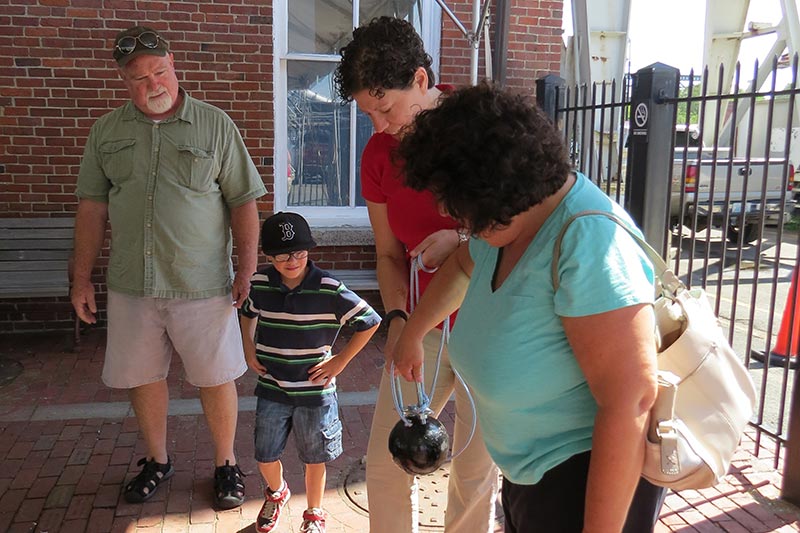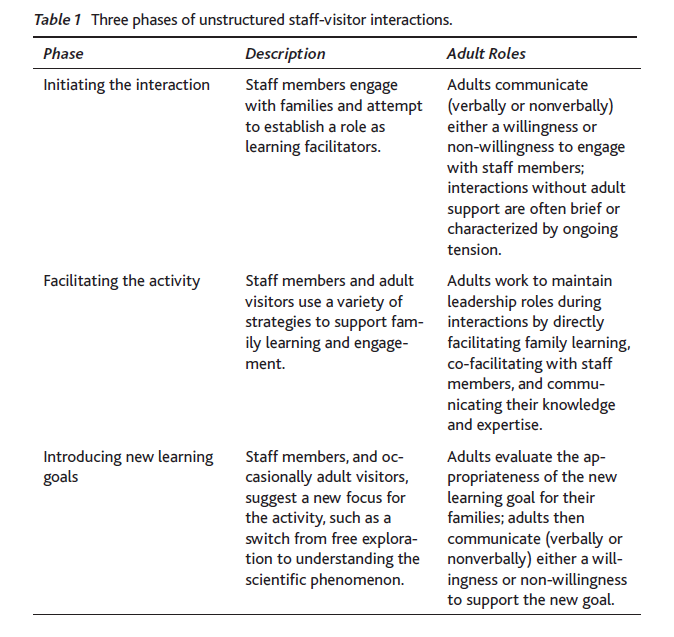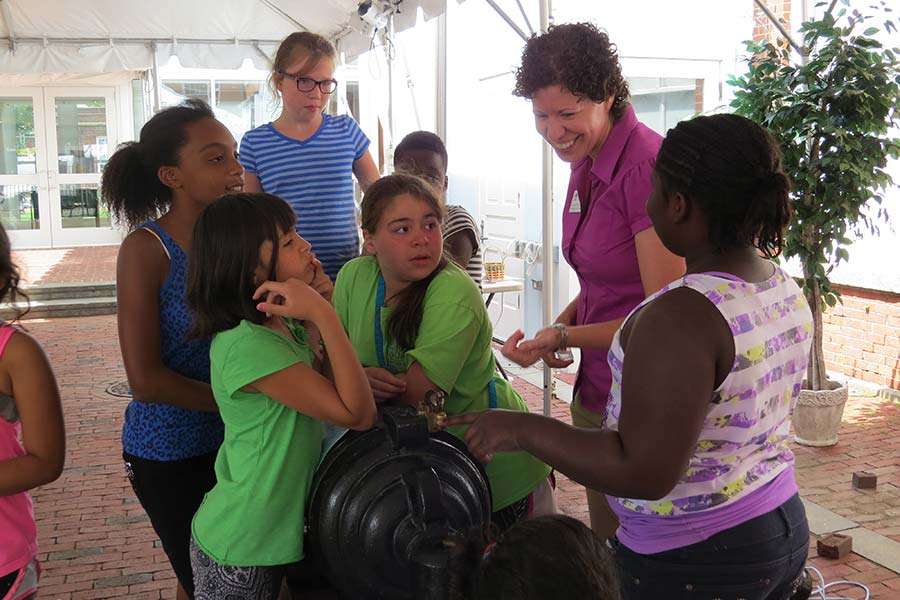4 Strategies and Resources for Establishing Engagement
1. Send Invitations in the First 30 Seconds
The first 30 seconds are the most important in your program. The invitation and welcome is the time for the facilitator to make clear, in a myriad of ways, the desire for adult involvement and set the stage for the challenge ahead. See Invite All to Participate to learn more.
2. Establish Goals and Lay Out Challenges
Be concise and clear. Don’t give kids time for their attention to wander and don’t lose adult interest with an overly-simplistic explanation. Help adults work with the children in their group by specifically, and if necessary, repeatedly, identifying the challenge.
3. Easy Entry
Some adults are not used to actively participating in family programs, so they may be uncomfortable at first. In order to keep it comfortable, start out easy and give everyone an entry point into the program. These are some easy entries into the type of hands-on, minds-on, interactive program we have in store for the family:
Ask a Straightforward Question
Opinion questions or a question about a family experience work well. Similarly, asking everyone to offer an answer to an open-ended question is an easy, safe way to let adults know they are meant to be an active participant in your multigenerational program. You can even preface the question with a phrase like, “I’m going to ask everyone to guess.” Watch this video to see the technique in action at the USS Constitution Museum:
Let Everyone Explore an Object
During our Ready, Aim, Fire! program, before families start to assemble their Alka-Seltzer cannons, they learn about real cannons. Facilitators pass around a cannonball so participants get a sense of how much they weighed and how that would affect the gun crew. We usually hand it to adults first. They’re very good about making sure kids get a turn, too.

Give Everyone a Role
Give adults a role as soon as possible to keep them involved and feeling essential. Continually look for opportunities to engage adults in activities or discussion, preferably with the family but also with the facilitator.
4. Family Learning Comes in Different Forms
In order to establish engagement, it is important to remember that engagement and family learning come in different forms. Because of this, the role of the facilitator may change depending on the needs of different family audiences.
As family program facilitators, it is our job to engage all family members in our activities. In order to do so successfully, facilitators must negotiate their role with the goals and existing roles of each family’s adults. Scott Pattison and Lynn Dierking explored the nature of these role negotiations at the Oregon Museum of Science and Industry. Here’s some of what they found and the implications for facilitators:
“Front-line museum educators should adopt facilitation approaches that recognize and support the unique role that adults play in family learning in museums. These approaches should leverage the deep understanding parents and caregivers often have of their families’ knowledge, interests, and prior learning experiences, as well as adult family members’ natural inclination to facilitate successful learning experiences for their families.” 1

